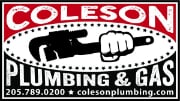Hiring a plumber is a common necessity for homeowners and businesses alike. When it comes to understanding how plumbers charge for their services, asking the right questions can help you budget effectively and ensure you get the best value for your money. Here are the key questions to ask when hiring a plumber:
- What is Your Hourly Rate or Flat Fee? Plumbers typically charge either an hourly rate or a flat fee for their services. Hourly rates can vary based on the plumber’s experience, location, and the nature of the job. Flat fees are often used for specific tasks like unclogging drains. It’s essential to clarify this upfront to avoid surprises.
- Do You Offer Free Estimates? Many plumbers provide free estimates for larger projects. This allows you to get an idea of the expected cost before committing to the work. Ask about their estimate process and whether there are any fees associated with it.
- Are There Any Additional Charges? In addition to the base rate, inquire about any potential additional charges. These may include materials, permits, disposal fees, or emergency service fees. Knowing all potential costs upfront helps you budget effectively.
- Is There a Warranty on Your Work? Reputable plumbers often offer warranties on their workmanship. Ask about the warranty period and what it covers. This provides peace of mind in case issues arise after the job is completed.
- Do You Charge for Travel Time? If you live outside the plumber’s typical service area, they may charge for travel time to reach your location. Clarify this and inquire about any associated fees.
- Can I Get a Detailed Written Quote? Always request a detailed, written quote that outlines the scope of work, labor costs, material costs, and any other fees. Having everything in writing helps prevent misunderstandings later.
- Is Emergency Service Available, and What Are the Rates? Plumbing emergencies can happen at any time. Ask if the plumber offers 24/7 emergency services and inquire about the rates for such situations. Understanding the cost of emergency repairs in advance can be crucial.
- Do You Have Insurance and Licensing? Confirm that the plumber is licensed and insured. This protects you in case of accidents or damage during the job. It also ensures that the plumber is legally qualified to perform plumbing work in your area.
- Can You Provide References or Reviews? Request references from previous clients or ask to see online reviews. This gives you insight into the plumber’s reputation and the quality of their work. Positive feedback from satisfied customers is a good sign.
- Do You Have Experience with Similar Projects? If your plumbing issue is specific, such as a water heater installation or sewer line repair, ask if the plumber has experience with similar projects. Experienced plumbers are more likely to handle specialized tasks efficiently.
- What is Your Payment Policy? Understand the plumber’s payment policy, including when payment is due and what forms of payment are accepted. Some plumbers may require a deposit upfront.
- Are You Familiar with Local Building Codes and Permits? Ensure that the plumber is knowledgeable about local building codes and whether permits are required for your project. Compliance with regulations is essential to avoid legal issues.
By asking these questions and discussing the details of your plumbing project with potential plumbers, you can make an informed decision and avoid unexpected costs or complications. It’s essential to choose a plumber who not only offers competitive pricing but also demonstrates professionalism, experience, and a commitment to quality work.

